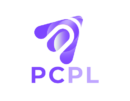Empower your Business with ERP Solutions

In today’s fast-paced business world, it is crucial to have effective and efficient processes in place to manage your medium-scale business. Enterprise Resource Planning (ERP) software is a tool that can help you achieve this.
In this blog, we will discuss the reasons why you should consider implementing ERP solutions for your medium-scale business.
A guide to ERP systems
ERP stands for Enterprise Resource Planning, which is a software system that helps businesses manage and integrate various aspects of their operations such as inventory, procurement, production, sales, marketing, accounting, and human resources. ERP software provides a centralized platform for businesses to streamline their processes, improve efficiency, and enhance decision-making.
ERP software can provide significant benefits to medium-scale businesses. By improving customer relationships, streamlining operations, increasing productivity, enhancing data security, and providing scalability, ERP software can help you take your business to the next level. If you are looking for a competitive advantage in today’s fast-paced business world, then implementing ERP software should be at the top of your list.
Understanding ERP benefits in detail
- Improved Efficiency: ERP software provides a centralized database that eliminates the need for manual data entry and reduces the chances of errors. This improves the efficiency of your business processes and helps you save time and money.
- Enhanced Productivity: By automating routine tasks and streamlining workflows, ERP software can help your employees focus on more important tasks that require critical thinking and creativity. This can lead to increased productivity and better utilization of resources.
- Better Data Management: ERP software provides real-time data and insights into various aspects of your business, which can help you make informed decisions. It also allows you to track inventory levels, manage procurement, and monitor sales performance, which can help you optimize your business operations.
- Enhanced Customer Experience: ERP software can help you improve your customer experience by providing a 360-degree view of your customers. This can help you provide personalized service, anticipate customer needs, and improve customer retention.
- Scalability: ERP software is highly scalable, which means it can grow with your business. As your business expands, you can add new users, locations, and functionalities to the system without having to overhaul the entire software.
ERP software can be a valuable asset for small and medium-scale businesses. If you’re looking to take your small business to the next level, implementing an ERP system can be a great investment.
Whether or not a business needs ERP software depends on various factors such as the size of the business, its complexity, and its goals.

Factors to consider whether your business needs an ERP system
- Size and Complexity: If your business is small and has a limited number of processes, then you may not need an ERP system. However, if your business has multiple departments, locations, and complex workflows, then an ERP system can help you integrate and manage your operations more efficiently.
- Data Management: If your business generates a lot of data and needs to track inventory, procurement, production, sales, accounting, and HR, then an ERP system can provide a centralized database that can help you manage and analyze this data more effectively.
- Efficiency: If your business processes are manual and time-consuming, an ERP system can help you automate routine tasks and streamline your workflows. This can save you time, reduce errors, and improve your efficiency.
- Growth: If your business is growing and expanding, then an ERP system can help you scale your operations and accommodate your growth. It can help you manage multiple locations, add new functionalities, and support more users.
- Compliance: If your business needs to comply with industry standards or regulations, an ERP system can help you manage compliance more effectively. It can help you track and report on data related to compliance requirements, reducing the risk of errors and non-compliance.
Thus, whether or not your business needs an ERP system depends on several factors. If your business is small and has simple processes, then an ERP system may not be necessary. However, if your business is large, complex, generates a lot of data, and needs to scale, an ERP system can be a valuable investment. It can help you streamline your operations, improve efficiency, and make informed decisions.
